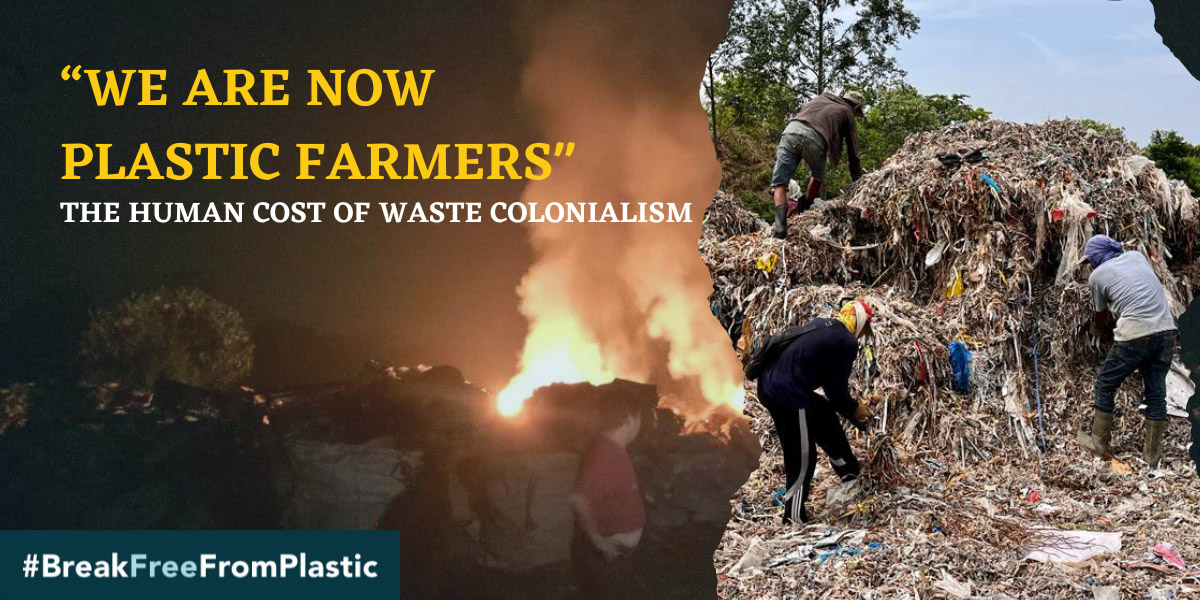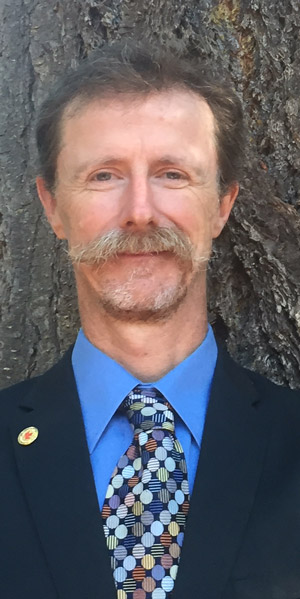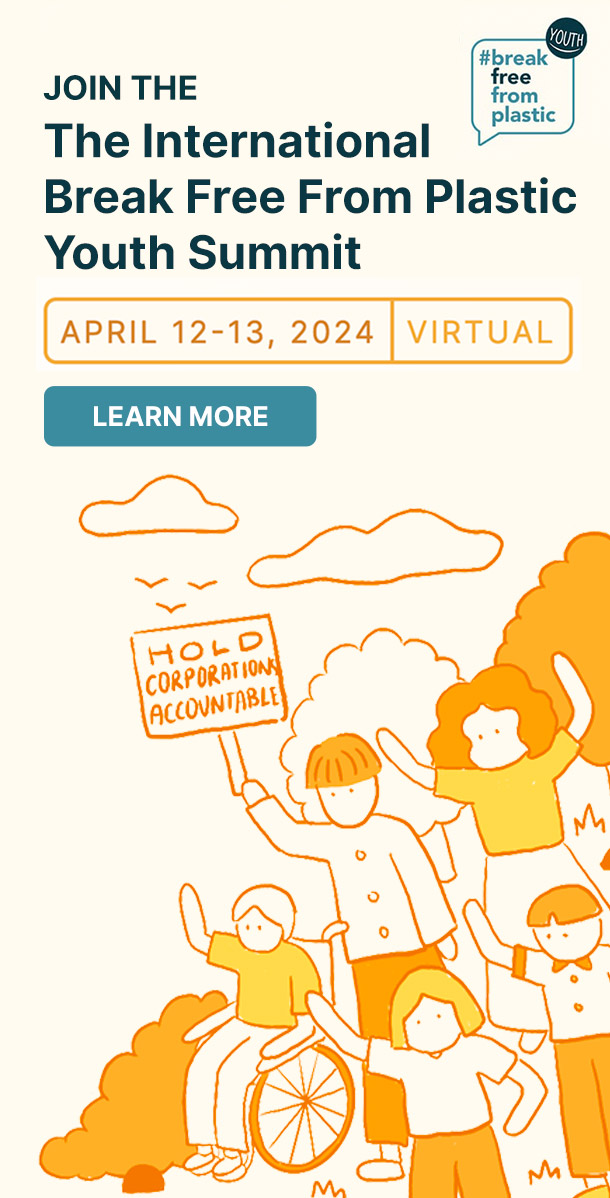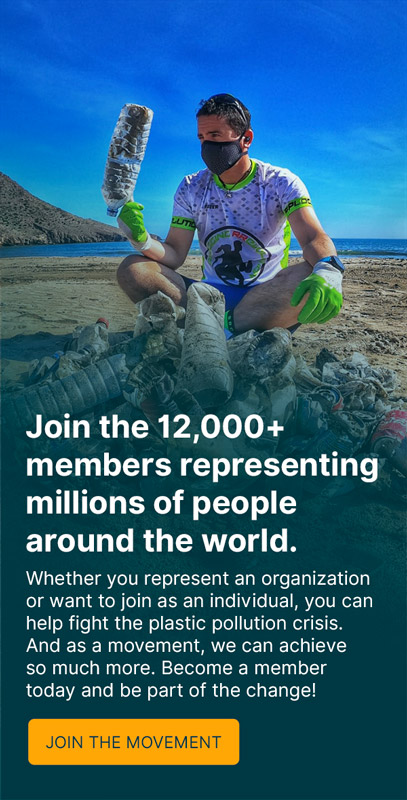Plastic waste exports can have catastrophic impacts on the environment and human rights, especially the right to a clean, healthy and sustainable environment. Plastic waste ends up polluting water, contaminating air, and harming the health of people already facing poverty and marginalization. This is a terrible environmental injustice!”
~ Dr David R. Boyd, UN Special Rapporteur on human rights and the environment.
On December 10, 1948, the Universal Declaration of Human Rights (UDHR) was passed - a milestone document which proclaims the inalienable rights that everyone is entitled to as a human being, irrespective of race, colour, religion, sex, language, political or other opinion, national or social origin, property, birth or other status.
In 2022, 74 years later, 161 countries at the United Nations General Assembly passed a resolution recognising the right to a clean, healthy, and sustainable environment as a human right.
Yet, vulnerable communities globally continue to face injustice as a result of plastic waste mismanagement and pollution.
Millions of tonnes of plastic waste are traded globally every year. Several reports show that exported plastic waste often ends up in landfills, is burnt or incinerated as fuel, or is discarded into waterways. This has serious implications for the health and wellbeing of communities living at the fringes of dumpsites or factories, workers in unauthorised plastic waste recycling facilities, as well as the environment.
Here are personal stories of individuals and communities, the disproportionate costs they bear due to waste colonialism, and how their rights to health and a healthy environment have been violated.
Malaysia
In January 2018, China implemented its National Sword Policy to stop most plastic waste imports. Between January and July that year, Malaysia, a tiny country flanking the South China Sea, imported nearly half a million tonnes of plastic waste. What happened, and who is bearing the true costs of this reckless economic move?
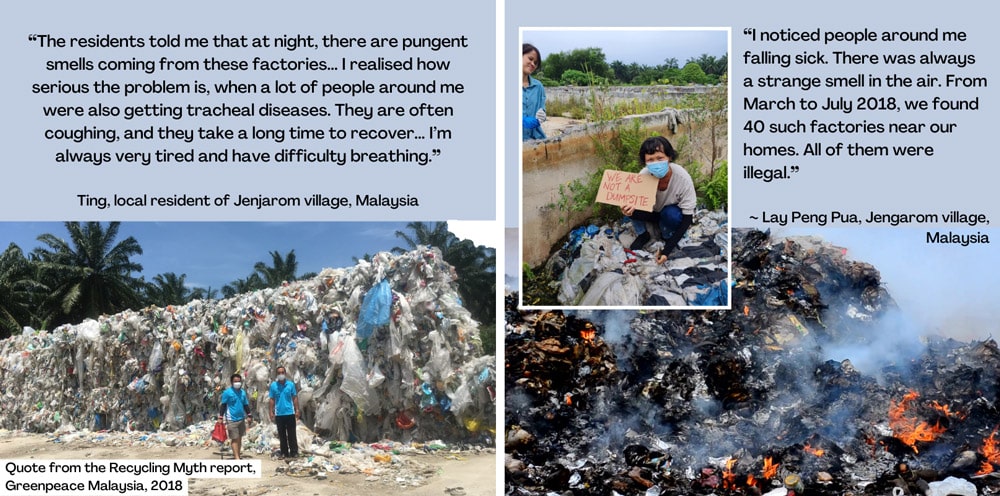
Quote Source: The Recycling Myth report, Greenpeace Malaysia, 2018. Quote Source: Lay Peng Pua, Kuala Langat Environmental Action Association.
Indonesia
Rural communities in Indonesia who worked in lush-green maize and paddy fields not so long ago, have turned to waste work today. Places like Kragilan and Bangun village in East Java have become dumpsites, where plastic scraps shipped along with waste paper imports are discarded or incinerated.
Sifting through plastic scrap has become a community-level cottage industry. Waste pickers and communities living around recycling factories constantly breathe in toxic fumes generated by burning plastic. These images are from Bangun, East Java, Indonesia.
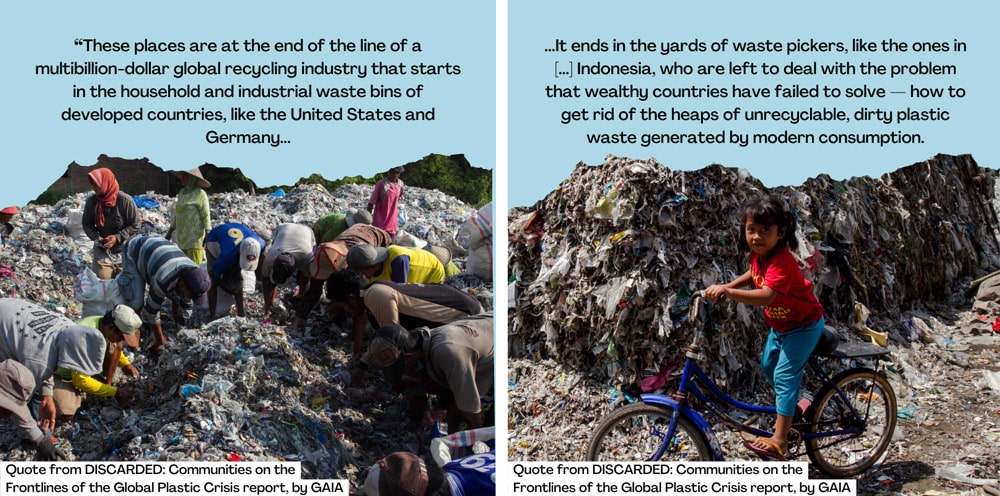
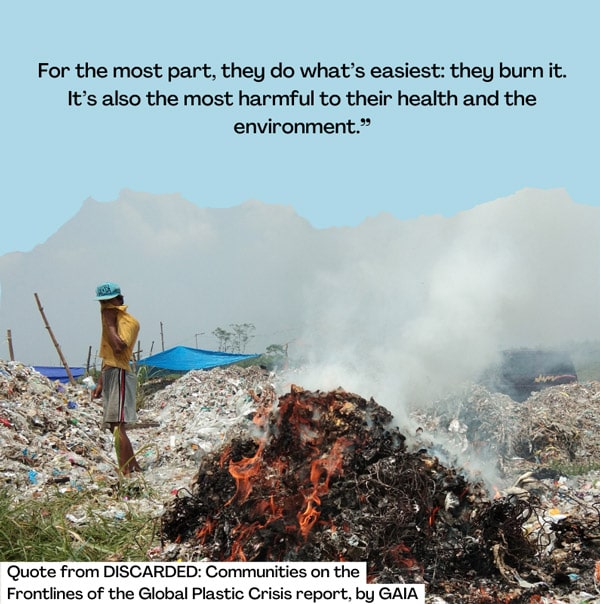
Quote source: DISCARDED: Communities on the Frontlines of the Global Plastic Crisis report, by GAIA. Image credits: Fully Syafi/ECOTON.
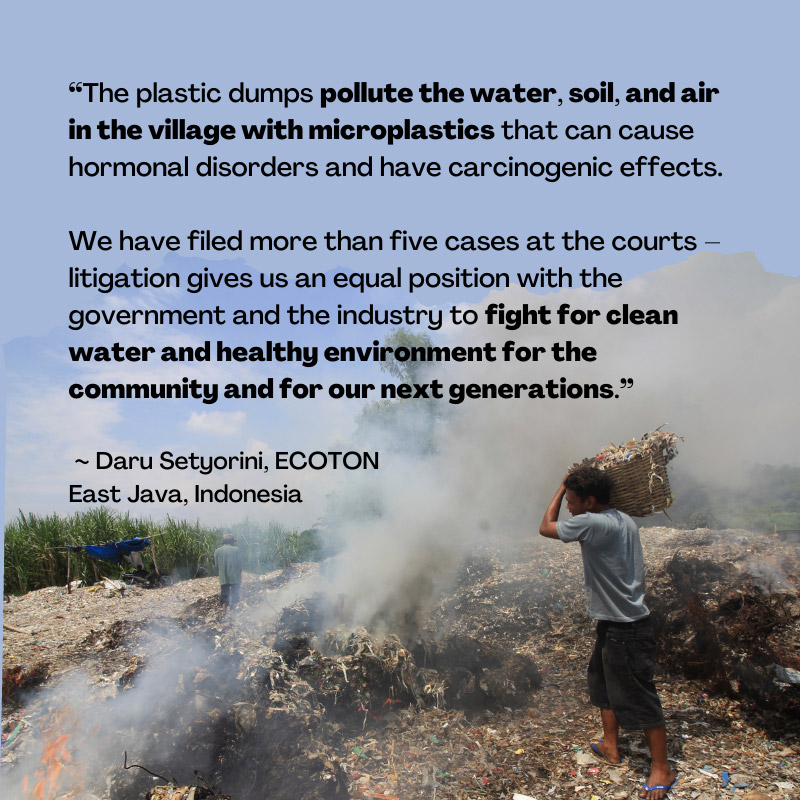
Image credits: ECOTON.
Turkey
As awareness increases in some countries across Southeast Asia and restrictions on plastic waste imports are implemented, Turkey has become Europe’s plastic waste destination.
This resulted in a surge in illegal disposal methods: dumping and burning of imported garbage has been reported in İzmir and İstanbul, with much of the activity centred in Adana. The recent influx of EU plastic waste imports also contributed to the growth of the plastic recycling sector, harming the health of workers and nearby communities.
In the past 16 years, there has been a 241-fold increase in plastic waste importation to Turkey - the soil, air and water around dumping sites bear testimony to the chemical poisoning caused by burning plastic waste.
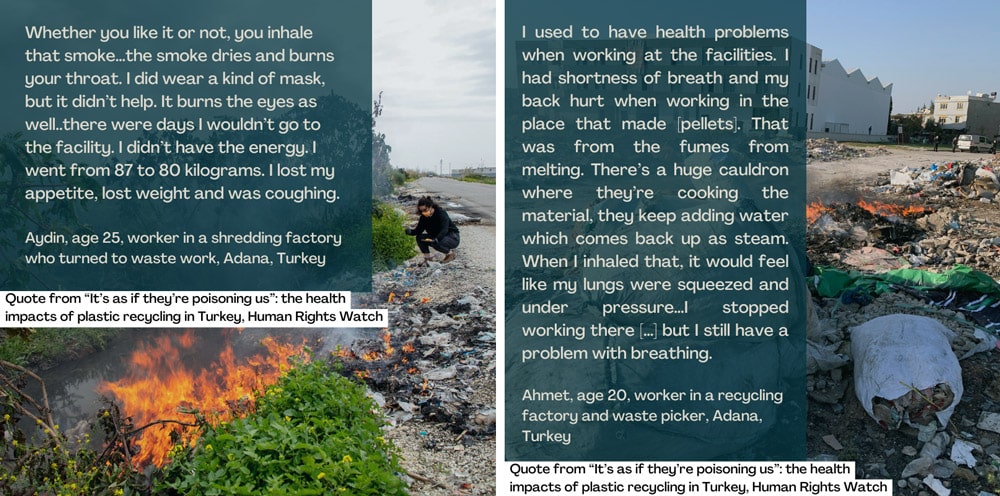
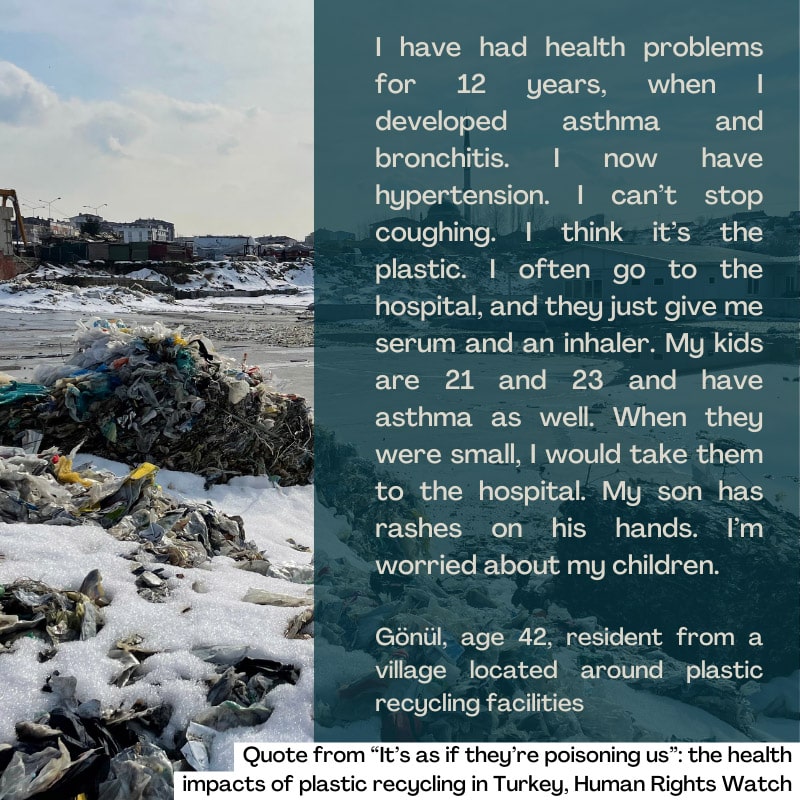
Image credits: Caner Ozkan / Greenpeace (via Basel Action Network on Flickr - CC BY-SA-NC), Human Rights Watch. Quote source: “It’s as if they’re poisoning us”: the health impacts of plastic recycling in Turkey, Human Rights Watch.
The Philippines
In 2014, the Philippine Commission on Human Rights (CHR) issued a “Fifteen-Point Human Rights Agenda” to uphold “the people’s right to chemical safety” which “acknowledges that trade of toxic wastes, products and technologies, collectively toxic trade, also forms a disincentive towards attaining Zero Waste resource management.”
Human rights defenders have organised protest rallies to defend their right to a healthy environment, drawing attention to the fate of mixed plastic trash being dumped in the country, and even ensuring the repatriation of more than 100 shipping containers back to Canada in 2019 and South Korea in 2020.
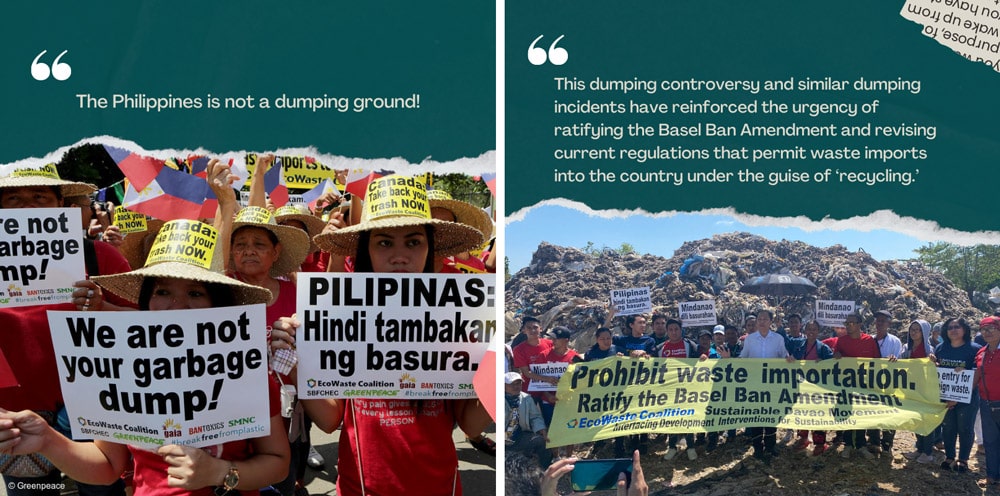
Image 1 credits: courtesy Greenpeace Philippines and EcoWaste Coalition, first published in the report: Waste trade in the Philippines: How local and global policy instruments can stop the tide of foreign waste dumping in the country, March 2020.
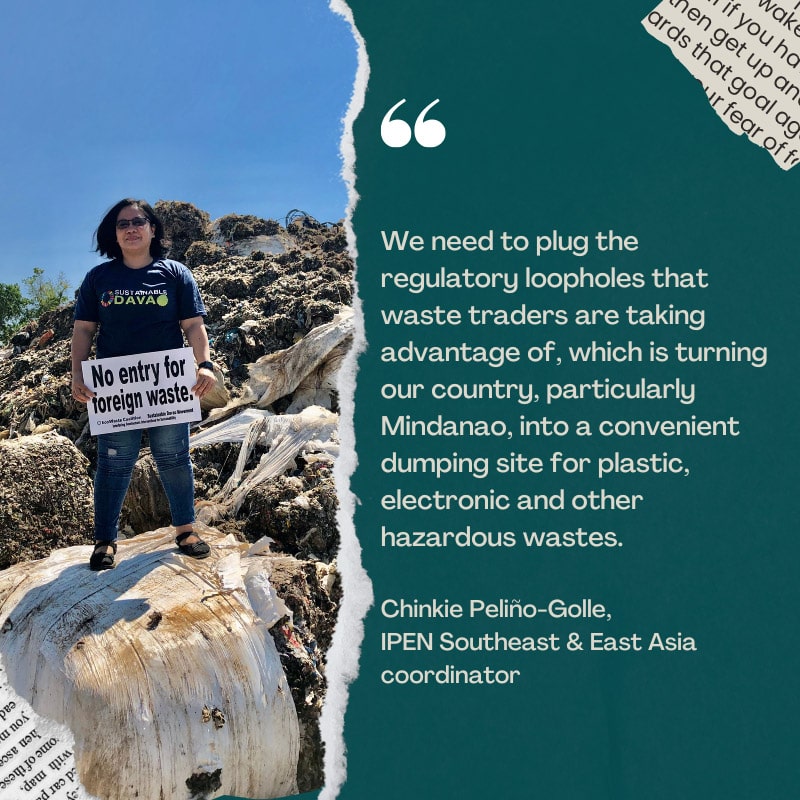
Image 2 and 3, and quotes: Chinkie Peliño-Golle
Who is responsible?
Perpetrators of waste colonialism must be held accountable for these human rights abuses. The adverse impacts of waste trade on human rights is faced disproportionately by developing countries - to better protect these communities, PLASTIC WASTE TRADE MUST STOP!
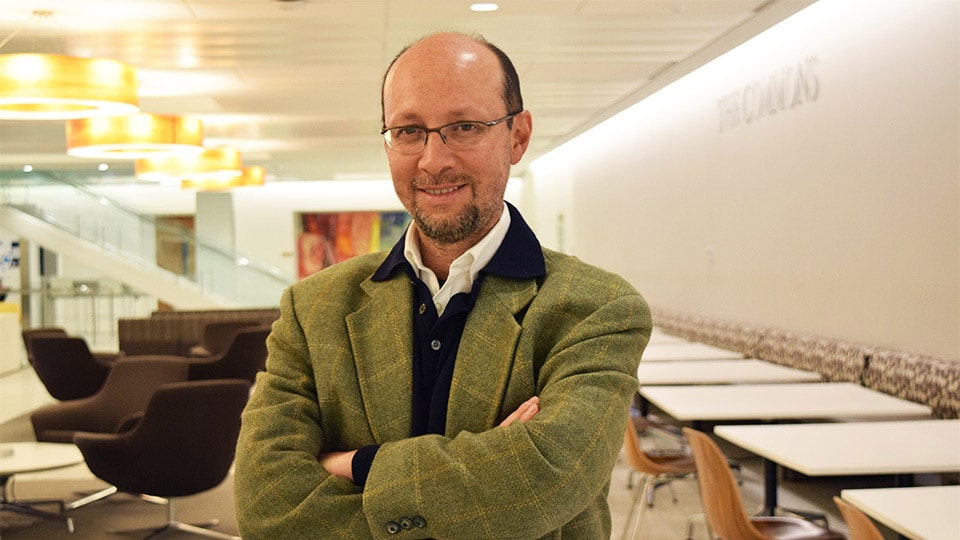 "We are in the midst of a worldwide plastics crisis. International waste trade creates an illusion of proper recycling, when there is actually a geographical shifting of the plastic waste problem, affecting the rights of the most vulnerable.
"We are in the midst of a worldwide plastics crisis. International waste trade creates an illusion of proper recycling, when there is actually a geographical shifting of the plastic waste problem, affecting the rights of the most vulnerable.
A human rights-based approach calls for a vision of plastics policy that aligns with scientific evidence, centres on principles of non-discrimination, accountability and informed participation and gives special attention to the needs of people in vulnerable situations.
Strict controls must be instituted to prevent further pollution and to hold plastics and chemical producers accountable for the damage already caused, including remediation and compensation.Safeguarding the human rights of present and future generations that are compromised by the growing toxification of the planet demands that the international community reverse the plastics crisis.”
Dr Marcos A. Orellana, UN Special Rapporteur on toxics and human rights.
What can we do?
This World Human Rights Day, there are glimmers of hope.
Communities impacted by the negative impact of plastic waste imports from Asia, Africa and Latin America have called for an end to the practice. Countries have tightened controls in attempts to stem pollution from plastic waste imports, while Thailand plans to phase out all imports by 2025.
On December 1, the Environment Committee of the European Parliament voted to set a ban on EU plastic waste exports to OECD and non-OECD countries, as part of the revision of the EU Waste Shipment Regulation. The European Parliament Plenary will have to confirm these measures in another vote, followed by the Council.
Keep up the pressure to ensure the export ban gets confirmed, and that the final decision includes stronger measures against waste dumping within the EU - send this letter to European embassies in your country!
You can also help raise awareness about what’s wrong with plastic waste exports, or better still, sign our #StopShippingPlasticWaste petition!
FURTHER READING/RESOURCES:
THAILAND, MALAYSIA & INDONESIA
Discarded - Communities on the frontlines of the global plastic crisis - Global Alliance for Incinerator Alternatives (GAIA).
MALAYSIA
The Recycling Myth: Malaysia and the Broken Global Recycling System - Greenpeace Southeast Asia
THE RECYCLING MYTH 2.0: The Toxic After-Effects of Imported Plastic Waste in Malaysia - Greenpeace Southeast Asia
INDONESIA
Plastic Waste Flooding Indonesia Leads to Toxic Chemical Contamination of the Food Chain, IPEN, Nexus3 Foundation, Arnika Association and ECOTON
PHILIPPINES
Waste trade in the Philippines: How local and global policy instruments can stop the tide of foreign waste dumping in the country, Greenpeace Philippines and EcoWaste Coalition, March 2020
TURKEY
“It’s as if they’re poisoning us”: the health impacts of plastic recycling in Turkey, Human Rights Watch
Game of Waste, Greenpeace Mediterranean

